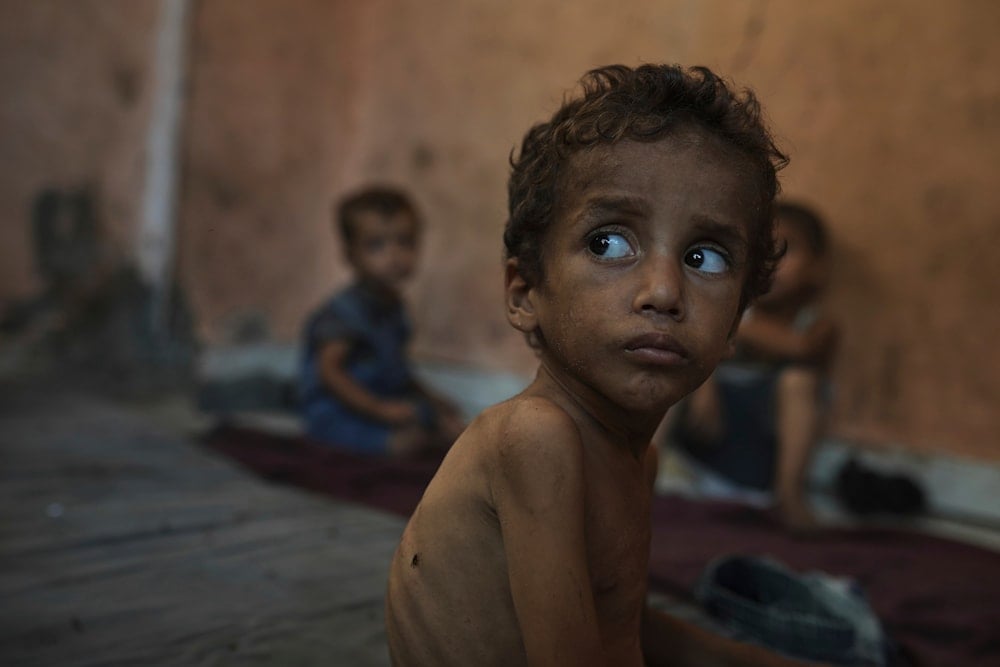Gaza faces total blockade under new Israeli plan: Israeli media
"Israel" is weighing a complete blockade on key areas in Gaza, cutting off food, water, and aid, amid stalled negotiations and growing international pressure over the humanitarian crisis.
-

Yazan Abu Ful, a starving 2-year-old child, sits at his family home in the Shati refugee camp in Gaza City on July 23, 2025. (AP Photo/Jehad Alshrafi)
"Israel" is reportedly considering an unprecedented blockade on densely populated areas within the Gaza Strip, which would include halting the entry of food, water, and humanitarian aid. The plan, disclosed by Israeli Channel 10 Kan on Tuesday, is under discussion within the Israeli Ministry of Security.
The potential blockade follows the end of "Operation Gideon's Chariots", which failed to make headway on the issue of captured Israeli soldiers. Although no final decision has been made, Kan reported that an expanded cabinet meeting is expected to be held in the coming days to debate the proposal.
According to the channel, more than two million Palestinians are currently concentrated in three primary areas: Gaza City, the central refugee camps, and the so-called humanitarian zone in al-Mawasi. The Israeli security and military establishment is evaluating whether to impose the blockade on all three locations simultaneously or in phases.
The plan includes preventing any humanitarian aid, whether delivered by trucks or via airdrops, from entering the targeted zones.
Strategy to isolate Hamas from the population
A central component of the proposal involves allegedly offering access to food, water, electricity, and aid to those who leave the besieged zones. This measure is seen as an attempt to isolate the Palestinian Resistance.
Quoting security sources, the channel reported, "Hamas' refusal to move toward a deal forces Israel to resort to such a step," despite mounting global calls to end the war and growing concern over the worsening humanitarian conditions in Gaza.
"Israel" reportedly hopes that negotiations over a prisoner exchange will advance before such drastic measures are implemented, according to Kan.
It is noteworthy that "Israel" has been accused of repeatedly stalling ceasefire talks or derailing them since the start of the genocide in Gaza.
Political and military discussions intensify
Moreover, Israeli Prime Minister Benjamin Netanyahu has convened a new cabinet session to discuss a range of military options, including the division of the Gaza Strip, the imposition of a military administration, and direct control over food supply lines to major population centers.
The proposal also includes continued efforts to push residents from the north of Gaza to the south.
During these discussions, the Israeli Chief of Staff reportedly informed cabinet members that the army has reached a point where "the war’s objectives are conflicting," calling for clear directives should the government choose to alter the military course.
Kan noted that while these plans remain under consideration and have not been finalized, mediation efforts are ongoing. However, no significant breakthroughs have been reported so far.

 3 Min Read
3 Min Read









